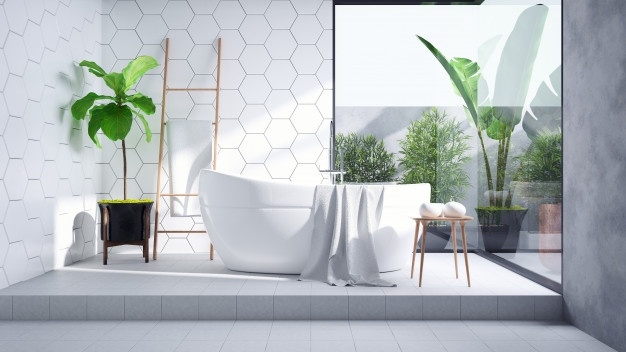We all want nothing but the best for our house, especially the shower and bathroom areas. Because obviously, they are our main thinking spot right? We should keep the ambience of showers the way we like it because for most of us the four walls of the shower are our safe and relaxing spot. If you are thinking about remodelling your bathroom area, then the shower area should be your priority. Showers are the central point and you should select the best tile for shower walls. But choosing the right tiles and materials task can get overwhelming for many homeowners. Selecting the best tiles for the shower walls is kind of the biggest decision you have had to make. It’s the first thing people will see and it is also a deciding factor of the aesthetics of the room. The main question is, with so many options available how would you know which one is the right tile for your shower walls?
How To Select The Right Tiles For Shower Walls?
Selecting the right material for your shower walls depends on a number of factors. You need to figure out what you like before fixing a particular kind of tile. The first thing we will look for is the style and appearance of the tiles, but that should not be the only thing. Some other factors need an equal amount of consideration too, like the size of the tiles, how durable they are, how well they work in a wet environment, and of course, the price range.
Porcelain, Ceramic, or Stone– Which Is The Best Tile For Shower Walls?
You will find all kinds of tiles In the market claiming to work their best under all conditions. But that’s not always true. If you are not familiar with this industry, then you should read and learn a lot before selecting one. You will find Porcelain, Ceramic, and stone-made tiles at the top of the list of best tiles for shower walls. They do deserve this position because these tiles specifically deal with moisture, humidity, and vapours better than other tile materials.
Ceramic
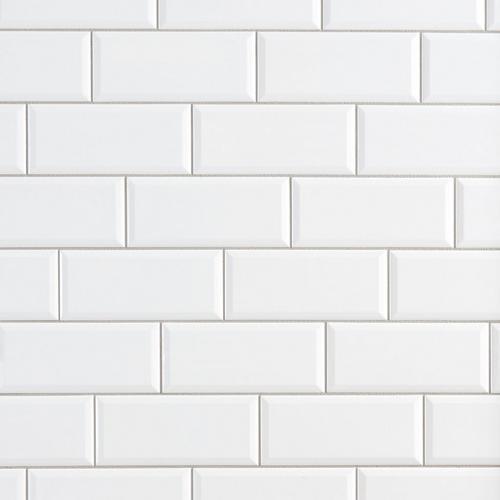
- Ceramic tiles have been in this industry for decades now, and not even for once did they disappoint their customers with poor performance.
- These tiles are considered to be the best tiles for shower walls, which is not a surprise.
- Not only for shower walls, but they are also the first choice of many for shower flooring as well. These tiles are exactly what a water-filled environment needs.
- You have to study the texture and size closely because ceramic tiles can be very slick.
- These tiles come in different and beautiful styles and designs, even the colour option is attractive too.
- Ceramic tiles are easy to cut, so you won’t have any problem while installing or removing them.
- You just need to remember that these tiles are extremely slick but come in different slip-resistant capacities, so buy them accordingly.
Porcelain

- Porcelain material has almost the same features and functionality as Ceramics.
- In terms of popularity, porcelain is equal to or sometimes higher than the popularity of ceramic tiles. The reason why these two always give each other a tough competition.
- Porcelain tiles are more seen in sinks, tubs, kitchen walls, and other products than in Shower walls, but that doesn’t mean they won’t do wonders here.
- The significant difference between ceramic and porcelain tiles is that the porcelain is fired at a higher temperature.
- Both of them are made of clay mixtures, but porcelain material is stronger because of higher temperatures.
- Porcelain tiles have a through-body construction, meaning you won’t see colour changes from a chip.
- There are not many options available in porcelain tiles and also they can be a little harder to install.
Stone
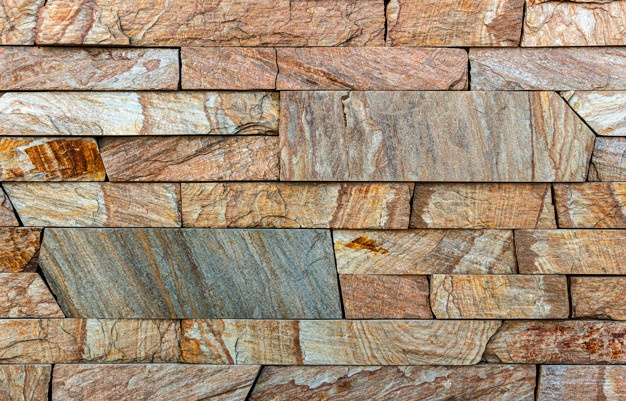
- ‘Unique and aesthetic aura’ is the proper definition of the Stone tiles.
- If you want something different for your shower walls, then stone tiles are a great choice.
- If you get the right type of stone then you can use it on walls, flooring, and shower stalls, just make sure they are sealed properly.
- There is no shortage of stone tiles for shower walls, you may get your best suitable type of tiles from here.
- The most famous stone tiles, and maybe we all have heard about them, are marble, limestone, travertine, slate, and granite.
- One difference is that you won’t have many options on size, colours, and textures in stone tiles compared to ceramic tiles.
- That doesn’t mean they don’t make a good tile material, if taken care of properly, stone tiles will give your bathroom a more stylish look than ceramic or porcelain tiles can.
We now have a little bit of knowledge on what porcelain, ceramic, and stone tiles are. But you can’t use them all for your shower walls, you still have the ‘choose the best tiles’ task left and that can be only possible if you know the differences between porcelain, ceramic, and stone tiles.
The Main Difference Between Ceramic and porcelain tiles
First, let’s talk about the most popular ones that are porcelain and ceramic tiles. What do you think is the better option for shower walls? There can never be a final answer to this question because both porcelain and ceramic tiles have their benefits, which suit some people and for some, it is not that beneficial. But still, if a comparison is to be made, then according to experts, porcelain tile is the best tile for shower walls. They are more attractive and stylish than ceramic tiles.But the main advantage of having porcelain tiles is that they are made of high density, which means the tiles have a low moisture permeability. This is a commendable feature because we all want tiles for shower walls that are 100% waterproof.
Let’s Talk About Density
You should also know that there are benefits to using ceramic over porcelain. The main difference between them is their density structure. Whatever you decide to buy (porcelain, ceramic, or stone) remember one thing that the more dense a tile is the more it will be able to resist the moisture origin problems and vice versa.
Porcelain and Ceramic Density
Talking about the density factor before choosing tiles for your shower walls is extremely important. Both of them have a completely different perspective of how a water-filled environment must be handled.
Let’s take a look into it-
- As mentioned above, porcelain tiles have more density than ceramic and stone tiles.
- You have seen what happens when water spills on a glass surface, that’s exactly how porcelain tiles work. They absorb water just like glass does.
- Porcelain tiles are not 100% water resistant but they do repel water like glass.
- But if you look into ceramic tiles you will see that they absorb water more readily than porcelain tiles.
- You will notice that the shine or colour of the base of ceramic tiles gets darker, which means that it is absorbing moisture.
- This doesn’t mean that your shower walls will completely become unglazed. It just shows the significant difference in the materials used in both tiles.
How Permeable Ceramic Tiles are Compared to Porcelain And Stone?
Permeability is another important factor you must consider before selecting the best tile for shower walls. Ceramic tiles lose their charm when it comes to permeability. This becomes a problem if you are building a tiled shower. When remodelling your shower tiles with new ones, checking the hydration of the bottom side of the tile becomes extremely important, because they decide how strong the bond will be. That’s what the problem with ceramic tiles is because they tend to absorb water from the backside of the tiles efficiently, the water gets removed from the concrete which reduces its ability to set properly. If this happens then you will have to face the problem of tile immobility. Ceramic tiles will get stuck in a place and you will not be able to adjust them because the mortar is too dry and stiff.
Advantages of Ceramic Tile
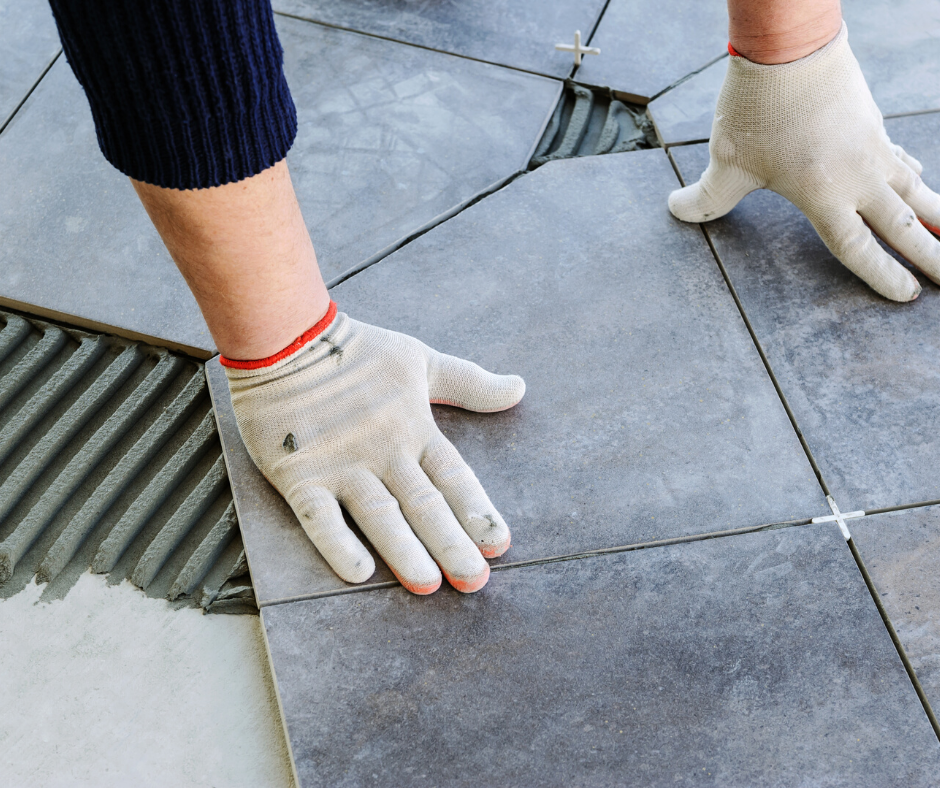
We have talked about why porcelain tiles can be a better option so talking a little about the advantages of ceramic tile is only fair.
- The ceramic tiles are easier to work with if compared to porcelain or stone tiles.
- It is very easy to cut and fix ceramic tiles because they are much softer than porcelain and stone tiles. You can even cut them with a tile saw or a standard tile cutter.
- Also probably one of the biggest plus points of having a ceramic tile is that you can now have perfect rounded or edge corners easily.
- Ceramic can be easily cut into any shape with tile shaping hand tools, so you don’t have to buy an electric cutting or grinding tool.
- Apart from the permeability issue, ceramic tiles have no other significant disadvantages over porcelain and stone tiles.
You might also want to know the 5 Top Tile Manufacturing Companies in India
Let’s talk about Stone Tiles
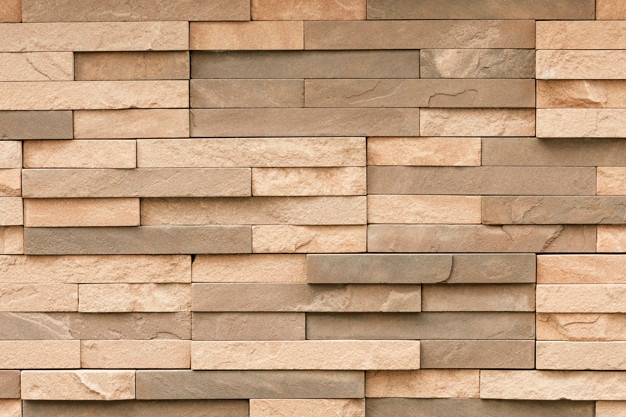
We learned about the disadvantages and advantages of having ceramic and porcelain tiles which might have left you pretty confused. One thing you can do is skip both these options and go with natural stone tiles instead. It’s not that they are superior, it’s just that stone could be that unique element that was missing from your shower walls. Natural stone tiles are becoming popular day by day and if you want to try these out you should remember that they can be difficult to handle, install and maintain.
Stone tiles include-
- Marble tiles
- Slate tiles
- Travertine tiles
- Granite tiles
- Pebblestone tiles
- engineered quartz tiles and many more.
The one thing that makes people like stone tiles more than ceramic and porcelain tiles is that their color is the same throughout the tile. This means that if your cuts are clean and the installation is done properly you won’t need to install tile edging for stone tiles.
Marble Tiles & Travertine Tiles
These two are the most famous stone tiles for bathroom and shower walls. Both these tiles are extremely soft and porous because they are made of sedimentary rock. This becomes a problem too because they are so soft they can also wear down unpredictably over time.If you select these tiles, you will be awarded extra work of maintenance, that too frequently, but it is the look of marbles that will make you fall in love with them.
Granite Shower Tiles
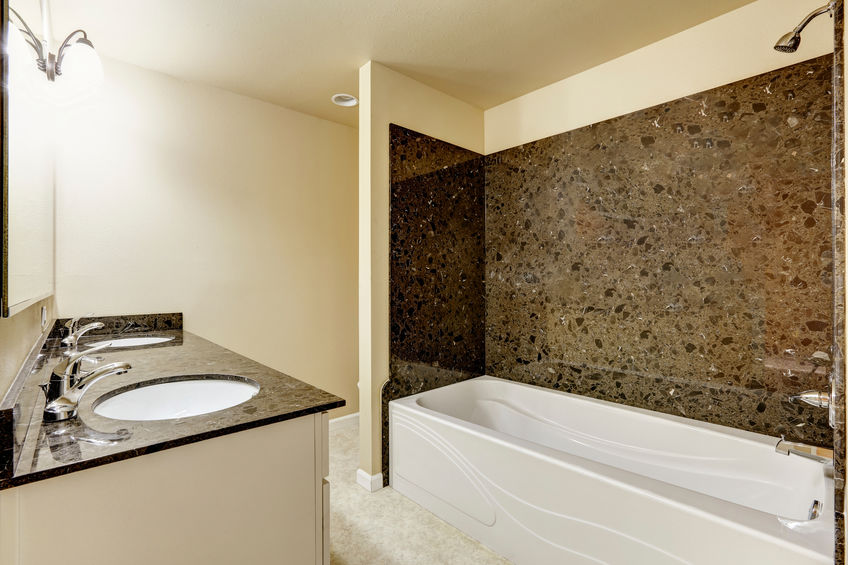
The granite tiles are denser than marble tiles, so it doesn’t require much cleaning and maintenance either. Granite tiles are not porous so you are free from doing constant tile sealing too. They do not absorb liquids, they repel them, so staining of tiles is not an issue like porcelain tiles have.
Pebble Mosaic Tiles
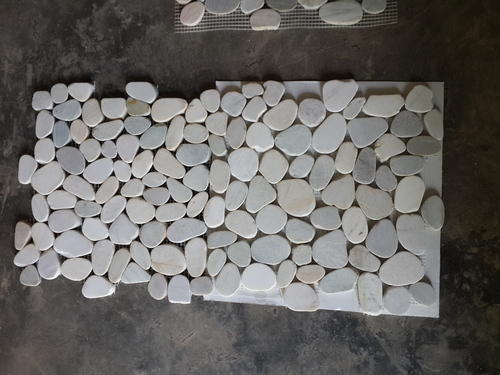
They are very unique and interesting, but with uniqueness comes more risks. These types of stone tiles are made out of small marble, travertine, or sandstone pebbles. If it needs to be sealed or not depends on the type of material used. Pebble tiles are not considered a good choice for shower walls because the mesh sheet used in these tiles is not suitable for a water-filled environment.
Quartz Tiles
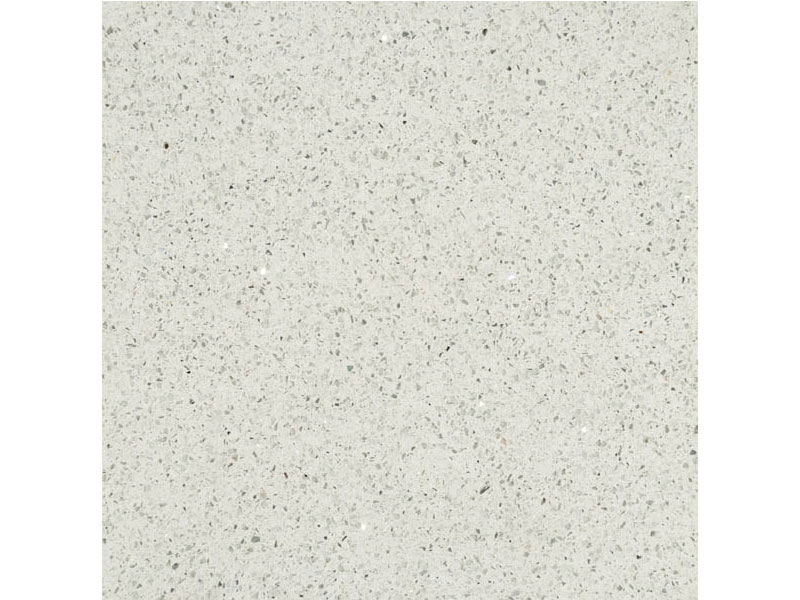
Quartz stone tiles became so popular among kitchen countertops. People demanded to make quartz tiles suitable for shower and bathroom walls too. Installation and maintenance of these stone tiles are easier compared to ceramic and porcelain tiles. The advantage of using Quartz tile over other tiles is that they are super easy to clean and the manufacturing task is also simple compared to ceramic or porcelain. One thing to remember before selecting stone tiles over others is that they are very hard and non-porous.
So What’s The Final Conclusion?
So, is Ceramic or porcelain or stone tiles the best tile for shower walls? It is not an easy choice to make. You need to consider many factors, like the ones we talked about above. Still, if you are new to this field, it is advisable to ask for help from a more knowledgeable person because nobody wants to waste their hard-earned money carelessly.

